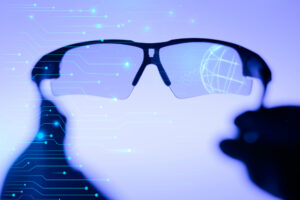According to Deloitte Research, augmented reality and AI will transform the traditional healthcare business model by offering AR/MR-enabled hands-free solutions and IA-based diagnostic tools. For example, Microsoft Hololens 2 can provide information to the surgeon while allowing them to use both of their hands during the procedure.
With the continued restrictions associated with Covid-19, the use of augmented reality solutions is becoming increasingly important to address issues such as the complexity of remote patient support and the increased burden on hospitals. This includes both telesurgery solutions and mental health apps that are helping people to maintain psychological balance during these difficult times. For example, features such as drawing and annotating on the 3D screen can make communication between doctors and patients much easier and clearer. Remote assistance tools can also help clinicians support their patients while reducing downtime.
Combining with machine learning algorithms, AR technology can become an efficient option for disease detection. Back in 2020, Google announced the development of an AR-based microscope for the Department of Defense (DoD) to improve the accuracy of cancer diagnosis and treatment. Such a hybrid device uses a camera to capture images in real-time which are then processed using computer diagnostics to immediately display results and diagnose diseases at an early stage.


Average Rating